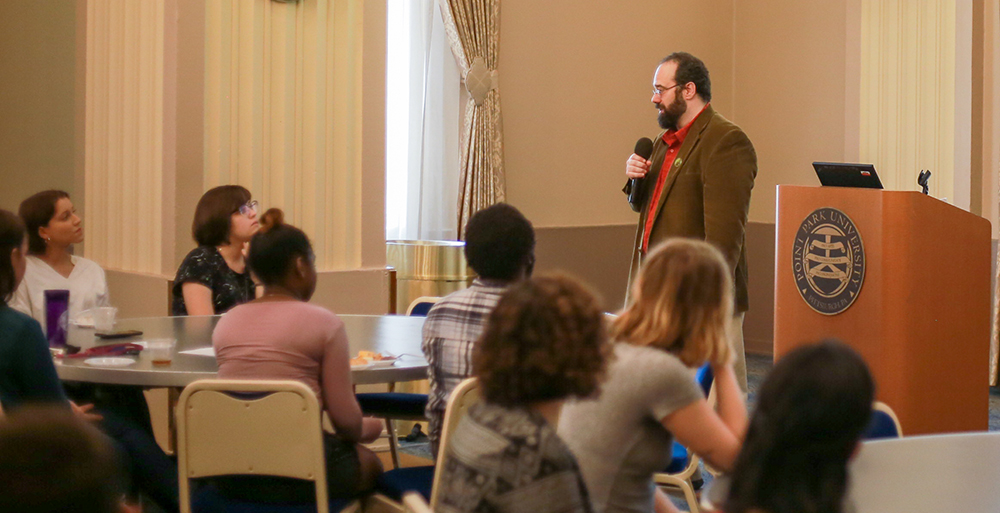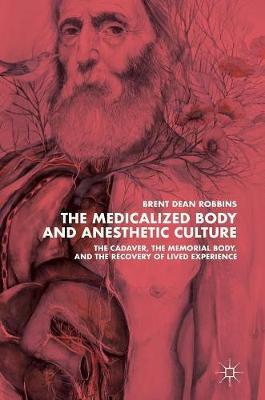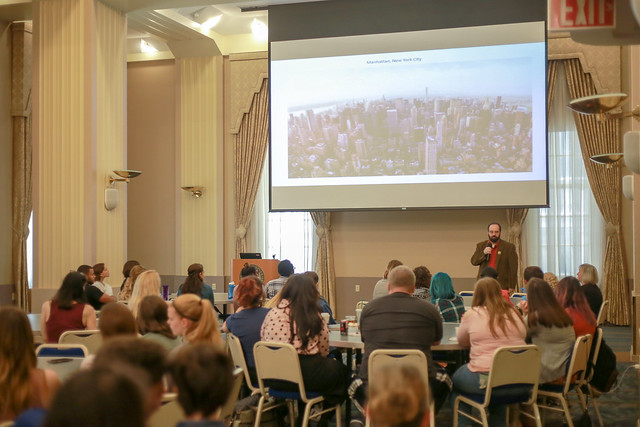Psychology Professor and Chair Launches Book Examining the Loss of Empathy in Modern Medicine for the Human Body Tuesday, September 18, 2018

Photos by Emilee Fails, senior public relations and advertising major
"Doctors learn that medical practice shouldn't talk about the anatomical body as if it were a person. As a result, medicine can often objectify and dehumanize patients by thinking of living people as if they are objects like a cadaver."
 For more than a decade, Brent Robbins, Ph.D., professor and chair of the Department of Psychology at Point Park University, has studied the way people experience their bodies and emotions.
For more than a decade, Brent Robbins, Ph.D., professor and chair of the Department of Psychology at Point Park University, has studied the way people experience their bodies and emotions.
As part of his research, Robbins explored how medical professionals in training come to learn about the body and how it impacts their clinical practices.
This research inspired him to write the book, The Medicalized Body and Anesthetic Culture: The Cadaver, the Memorial Body, and the Recovery of Lived Experience.
“I discovered that early on in their training medical professionals are socialized into a peculiar way of understanding the body, mainly through anatomical dissection of the cadaver. Doctors learn that medical practice shouldn't talk about the anatomical body as if it were a person. As a result, medicine can often objectify and dehumanize patients by thinking of living people as if they are objects like a cadaver,” Robbins explained.
He added: “The suppression of the memorial body comes at the price of concealing the lived, experiential body of patients in medical practice.”

Robbins is focused on how his research can help medicine and psychiatry to be more humane and less dehumanizing in practice.
“I'm also interested in findings ways to help people to more appropriately cope with death anxiety so that they are less prone to destructive defense mechanisms — not only in medicine, but across our society and deep in our culture,” he said.
The Department of Psychology and Confluence Psychology Alliance student group hosted a book launch event on campus Sept. 13.
At the event, Robbins discussed with students, faculty and staff how Western culture has helped to foster maladaptive coping patterns of perception associated with experiential avoidance, diminished empathy, death denial and the dysregulation of emotion.
Robbins teaches a variety of undergraduate and graduate psychology classes at Point Park including Critical Approaches to Psychology; Psychological Foundations; Psychology of Emotion; Happiness, Well-Being, and Human Strengths; and Research Methodology in the Human Sciences.
More About: faculty research, psychology, School of Arts and Sciences, faculty

